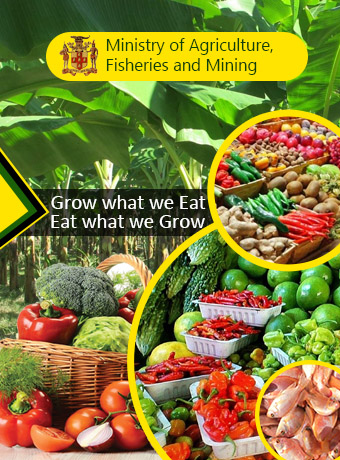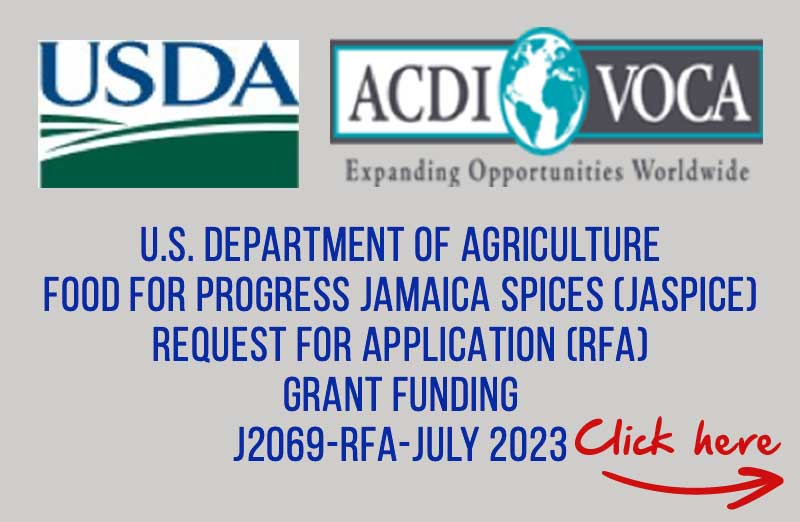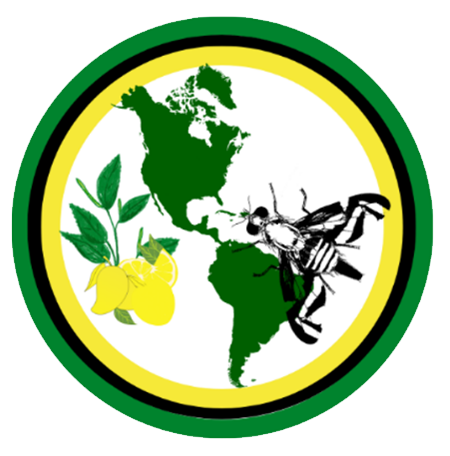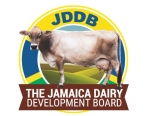
Research and Development Specialist with the US Department of Agriculture (USDA) Food for Progress Jamaica Spices (JaSPICE) Project Michelle Sherwood speaks at a recent JIS Think Tank.
The US Department of Agriculture (USDA) Food for Progress Jamaica Spices (JaSPICE) Project is making significant strides in addressing critical issues that will drive local production of ginger, turmeric and pimento.
The project, being implemented over the next five years, is geared towards revitalising the spice sector in Jamaica to meet existing export and domestic demands.
Research and Development Specialist on the JaSPICE project, Michelle Sherwood, emphasised the project’s commitment to innovation and collaboration at a recent JIS Think Tank.
“We partnered as a project with stakeholders at the beginning of the process at what we call a revisioning session, where we brought together stakeholders from across the agricultural sector, to help us to identify what are those issues that are predominantly needed to be addressed. This occurred in February of this year and at the end of it, we were able to identify those gaps and what are the research needs,” she noted.
Ms. Sherwood noted further that the collaborative session saw more than 42 participants who identified key issues, including the inadequacy and high cost of planting materials, and the pervasive ginger rhizome rot problem affecting production.
To tackle these challenges, the project has partnered with various entities, including the Food and Agriculture Organization of the United Nations (FAO), the Ministry of Agriculture, Fisheries and Mining, and several laboratories specialising in tissue culture technology.
“Tissue culture is a technology which helps remove the infection from planting material, namely ginger, ensuring they are clean and viable for cultivation and after that we use what is called ‘single bud’ technology, which helps to mass produce that material, and this we used with ginger initially. Now the project inherited a foundation which we are now expanding and upscaling,” explained Ms. Sherwood.
With the Jamaica Agricultural Commodities Regulatory Authority (JACRA) as a major partner, the project was also able to accomplish the same with turmeric.
JaSPICE is currently working with six nurseries, with plans to expand to 10 by the end of the year.
“It means that the access to increased clean plant material, particularly ginger, is currently being increased and addressing the issue in the market. We are also partnering with other entities, particularly when it comes to pimento, which right now is very limited. We have identified partners, including the Forestry Department; we are also partnering with private nurseries which are currently producing fruit trees and are willing to add pimento. So, already we are addressing the planting material issue for the three spices,” said Ms. Sherwood.
The expansion is also exploring cost-effective alternatives to traditional planting methods, such as using local materials and innovative techniques to reduce production costs.
“As a result, the project is changing and creating a paradigm shift in how we produce ginger and turmeric. What we are doing will actually cut down to one-tenth of what the farmer is using and that’s tremendous savings,” Ms. Sherwood noted.
The JaSPICE project is also addressing soil health to prevent reinfection of clean planting materials.






















